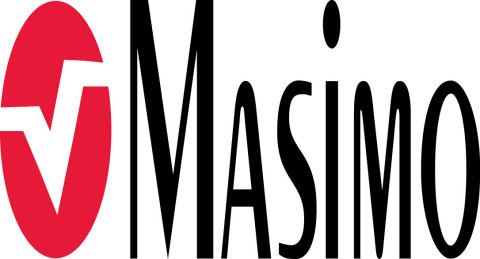IRVINE, Calif. & CLEVELAND--(BUSINESS WIRE)--Masimo (NASDAQ: MASI), a leading global provider of medical technology and hospital automation solutions, and Cleveland Clinic, a nonprofit academic medical center, announced today the launch of a new partnership centered around hospital-based remote patient monitoring (RPM), including TeleCritical Care. This will include the integration of Cleveland Clinic’s critical care (eHospital) and non-critical care (eCMU) central patient monitoring platforms with the Masimo Hospital Automation™ platform. The goal is to provide tools for clinicians that offer enhanced situational awareness and clinical decision-support for hospitalized patients, including the critically ill.
The collaboration will include joint development initiatives on predictive analytics and AI-based algorithms for improving cardiac care.
Cleveland Clinic’s existing critical care and non-critical care central monitoring platform provides continuous monitoring of a range of vital signs, including ECG, for both ICU and non-ICU patients at more than a 2,000-bed capacity. Its hospital-based RPM programs serve 11 hospitals, providing intensivist monitoring, 24/7 critical care nursing, and patient management. Cleveland Clinic’s programs1 have reduced patient mortality and reduced ICU length of stay while increasing caregiver satisfaction.2 With this partnership, Masimo and Cleveland Clinic hope to bring these innovations and patient benefits to other healthcare systems in the future. The aim of the enhanced program is to increase awareness and facilitate triage with proactive responses to changes in a patient’s condition. This improves patient care and saves lives by ensuring the highest risk patients are identified and receive timely treatment while maintaining quality of care for all patients.1,2
The Masimo Hospital Automation platform offers technologies designed to help clinicians improve patient care at the bedside, across the care continuum. Masimo Hospital Automation includes monitoring and wearable technologies, high-fidelity medical device integration, system-wide applications for surveillance and data visualization, and novel AI capabilities that support intelligent patient prioritization and help clinicians identify changes in patients’ condition more efficiently.
These decision-support tools are integrated into the Masimo Hospital Automation platform and utilize the Halo engine, technology which identifies deterioration patterns in multiple physiological parameters simultaneously, in real time. The Halo tools include Halo ION®, a comprehensive, scalable, and customizable continuous early warning score to help streamline patient assessment and clinical workflows. As part of their work together, Masimo and Cleveland Clinic are partnering to jointly develop an additional Halo-based decision-support tool to support clinicians with earlier detection of adverse events – ultimately helping them manage and improve patient outcomes more effectively, for low-, mid-, and high-acuity patients.
“We see great opportunities to enhance remote care, particularly for critically ill individuals,” said Chiedozie Udeh, M.D., Medical Director of ICU Operations at Cleveland Clinic. “By combining our technical and clinical expertise, we aim to improve situational awareness for clinicians and continue to improve outcomes for patients.”
Thomas Callahan, M.D., Staff Cardiologist at Cleveland Clinic’s Heart, Vascular & Thoracic Institute, and principal investigator for the AI study, added, “We look forward to exploring the effects of next-gen inpatient wearables, and as the capabilities of AI continue to advance, studying the potential impact on the care of cardiac patients, including those undergoing cardiac surgery.”
Joe Kiani, Founder and CEO of Masimo, said, “We are truly honored to have the opportunity to partner with Cleveland Clinic to advance patient care. By harnessing Masimo’s AI-powered decision support tools, automation solutions, and monitoring devices, alongside Cleveland Clinic’s vast clinical expertise and dedication to providing the highest quality, most innovative care, our partnership has the potential to significantly ease staff shortages, better standardize care, and promote intensivist- and specialist-led care. Ultimately, we will make significant strides in shifting from reactive to predictive and proactive care – improving patient outcomes, safety, and quality of care across the board.”
Dr. Chiedozie Udeh has a conflict of interest with Cleveland Clinic’s eHospital platform and may benefit from commercialization of eHospital technology developed by the Company. These financial interests are being managed by Cleveland Clinic and are within permissible limits established by the Institutional Conflicts of Interest Policy. eHospital is not a Masimo product.
@Masimo | #Masimo
About Masimo
Masimo (NASDAQ: MASI) is a global medical technology company that develops and produces a wide array of industry-leading monitoring technologies, including innovative measurements, sensors, patient monitors, and automation and connectivity solutions. In addition, Masimo Consumer Audio is home to eight legendary audio brands, including Bowers & Wilkins, Denon, Marantz, and Polk Audio. Our mission is to improve life, improve patient outcomes, and reduce the cost of care. Masimo SET® Measure-through Motion and Low Perfusion™ pulse oximetry, introduced in 1995, has been shown in over 100 independent and objective studies to outperform other pulse oximetry technologies.3 Masimo SET® has also been shown to help clinicians reduce severe retinopathy of prematurity in neonates,4 improve CCHD screening in newborns,5 and, when used for continuous monitoring with Masimo Patient SafetyNet™ in post-surgical wards, reduce rapid response team activations, ICU transfers, and costs.6-9 Masimo SET® is estimated to be used on more than 200 million patients in leading hospitals and other healthcare settings around the world,10 and is the primary pulse oximetry at all 10 top U.S. hospitals as ranked in the 2024 Newsweek World’s Best Hospitals listing.11 In 2005, Masimo introduced rainbow® Pulse CO-Oximetry technology, allowing noninvasive and continuous monitoring of blood constituents that previously could only be measured invasively, including total hemoglobin (SpHb®), oxygen content (SpOC™), carboxyhemoglobin (SpCO®), methemoglobin (SpMet®), Pleth Variability Index (PVi®), RPVi™ (rainbow® PVi), and Oxygen Reserve Index (ORi™). In 2013, Masimo introduced the Root® Patient Monitoring and Connectivity Platform, built from the ground up to be as flexible and expandable as possible to facilitate the addition of other Masimo and third-party monitoring technologies; key Masimo additions include Next Generation SedLine® Brain Function Monitoring, O3® Regional Oximetry, and ISA™ Capnography with NomoLine® sampling lines. Masimo’s family of continuous and spot-check monitoring Pulse CO-Oximeters® includes devices designed for use in a variety of clinical and non-clinical scenarios, including tetherless, wearable technology, such as Radius-7®, Radius PPG®, and Radius VSM™, portable devices like Rad-67®, fingertip pulse oximeters like MightySat® Rx, and devices available for use both in the hospital and at home, such as Rad-97® and the Masimo W1® Medical Watch. Masimo hospital and home automation and connectivity solutions are centered around the Masimo Hospital Automation™ platform, and include Iris® Gateway, iSirona™, Patient SafetyNet, Replica®, Halo ION®, UniView®, UniView :60™, and Masimo SafetyNet®. Its growing portfolio of health and wellness solutions includes Radius Tº® and Masimo W1 Sport. Additional information about Masimo and its products may be found at www.masimo.com. Published clinical studies on Masimo products can be found at www.masimo.com/evidence/featured-studies/feature/.
RPVi has not received FDA 510(k) clearance and is not available for sale in the United States. The use of the trademark Patient SafetyNet is under license from University HealthSystem Consortium.
References
- Cantillon et al JAMA 15-10101. Issued August 2016.
- Udeh C, Canfield C, Brown A et al. ICU Telemedicine and Clinical Factors Related to 30-Day Mortality: A Retrospective Cohort Study, Critical Care Medicine. January 2021 - Volume 49 - Issue 1 - p 9 doi: 10.1097/01.ccm.0000726092.34718.60.
- Published clinical studies on pulse oximetry and the benefits of Masimo SET® can be found on our website at http://www.masimo.com. Comparative studies include independent and objective studies which are comprised of abstracts presented at scientific meetings and peer-reviewed journal articles.
- Castillo A et al. Prevention of Retinopathy of Prematurity in Preterm Infants through Changes in Clinical Practice and SpO2 Technology. Acta Paediatr. 2011 Feb;100(2):188-92.
- de-Wahl Granelli A et al. Impact of pulse oximetry screening on the detection of duct dependent congenital heart disease: a Swedish prospective screening study in 39,821 newborns. BMJ. 2009;Jan 8;338.
- Taenzer A et al. Impact of pulse oximetry surveillance on rescue events and intensive care unit transfers: a before-and-after concurrence study. Anesthesiology. 2010:112(2):282-287.
- Taenzer A et al. Postoperative Monitoring – The Dartmouth Experience. Anesthesia Patient Safety Foundation Newsletter. Spring-Summer 2012.
- McGrath S et al. Surveillance Monitoring Management for General Care Units: Strategy, Design, and Implementation. The Joint Commission Journal on Quality and Patient Safety. 2016 Jul;42(7):293-302.
- McGrath S et al. Inpatient Respiratory Arrest Associated With Sedative and Analgesic Medications: Impact of Continuous Monitoring on Patient Mortality and Severe Morbidity. J Patient Saf. 2020 14 Mar. DOI: 10.1097/PTS.0000000000000696.
- Estimate: Masimo data on file.
- https://www.newsweek.com/rankings/worlds-best-hospitals-2024/united-states
Forward-Looking Statements
This press release includes forward-looking statements as defined in Section 27A of the Securities Act of 1933 and Section 21E of the Securities Exchange Act of 1934, in connection with the Private Securities Litigation Reform Act of 1995. These forward-looking statements include, among others, statements regarding the potential effectiveness of Masimo Hospital Automation™, Halo, and Halo ION®. These forward-looking statements are based on current expectations about future events affecting us and are subject to risks and uncertainties, all of which are difficult to predict and many of which are beyond our control and could cause our actual results to differ materially and adversely from those expressed in our forward-looking statements as a result of various risk factors, including, but not limited to: risks related to our assumptions regarding the repeatability of clinical results; risks related to our belief that Masimo's unique noninvasive measurement technologies, including Hospital Automation, Halo, and Halo ION, contribute to positive clinical outcomes and patient safety; risks related to our belief that Masimo noninvasive medical breakthroughs provide cost-effective solutions and unique advantages; risks that Masimo may not realize the expected benefits and goals that may be achieved by its collaboration with Cleveland Clinic; risks that Masimo and Cleveland Clinic fail to collaborate in the areas stated in this press release as planned; risks related to COVID-19; as well as other factors discussed in the "Risk Factors" section of our most recent reports filed with the Securities and Exchange Commission ("SEC"), which may be obtained for free at the SEC's website at www.sec.gov. Although we believe that the expectations reflected in our forward-looking statements are reasonable, we do not know whether our expectations will prove correct. All forward-looking statements included in this press release are expressly qualified in their entirety by the foregoing cautionary statements. You are cautioned not to place undue reliance on these forward-looking statements, which speak only as of today's date. We do not undertake any obligation to update, amend or clarify these statements or the "Risk Factors" contained in our most recent reports filed with the SEC, whether as a result of new information, future events or otherwise, except as may be required under the applicable securities laws.




